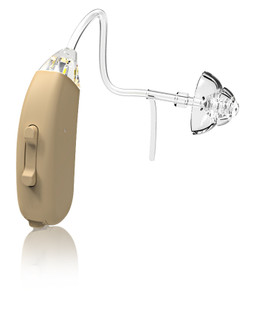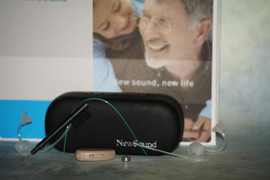10 Signs You Might Need a Hearing Aid
Posted by DR Paul on May 02, 2025
Hearing loss is often a gradual occurrence, creeping up on us without much notice. It can be easy to brush off the signs as mere inconveniences or simply part of aging. However, recognizing when it’s time to seek help is crucial for maintaining quality of life and ensuring effective communication with loved ones. In today's blog post, we’ll guide you through the top 10 signs that might indicate it's time to consider using a hearing aid. Whether you're experiencing these signs yourself or noticing them in someone you care about, this guide is designed to help you take informed steps towards better hearing health.
:
-
Struggling With Conversations in Noisy Environments:
One of the first signs of hearing loss often reveals itself in loud environments like restaurants or crowded gatherings. If you find yourself straining to follow conversations amidst background noise, it could be an indication that your hearing ability is diminishing. This difficulty arises because our ears naturally filter out irrelevant noise, allowing us to focus on what we want to hear—a function that becomes impaired with hearing loss. -
Frequently Asking Others to Repeat Themselves:
Do you often say "What?" or ask people to repeat themselves during conversations? While everyone occasionally misses what someone else says, consistently needing repetition can be frustrating for both parties involved and may signal a need for auditory assistance. Repeatedly asking others to speak louder or clarify their words suggests your ears are struggling more than they should. -
Turning Up the Volume on Electronic Devices:
Another telltale sign is if you're constantly increasing the volume on your television, radio, or phone beyond what others find comfortable. This behavior indicates that your ears require extra amplification than they used to in order to pick up sounds clearly—an adjustment made unconsciously as you attempt to compensate for decreased auditory input. -
Difficulty Understanding Phone Conversations:
Over-the-phone interactions rely heavily on audio clarity since visual cues are absent from these exchanges. If phone calls are becoming increasingly difficult due to misunderstanding statements or missing key details altogether—even when there’s no apparent connection issue—it might be time for an evaluation by an audiologist who can determine whether technological enhancement could improve your listening experience. -
Avoidance of Social Situations:
When social activities start feeling more like chores due primarily (or even partially) because keeping up with discussion feels exhausting—this avoidance behavior serves as another red flag indicating potential hearing deficiencies needing attention sooner rather than later before isolation sets in further impacting mental wellness negatively over time too! -
Missing Common Sounds:
Have everyday noises like doorbells ringing at home gone unnoticed lately? Or perhaps birds chirping outside don’t reach those same heights anymore either? Missing out on such common environmental sounds points towards sensory decline worth exploring professionally so adjustments made accordingly enhance awareness once again thereby enriching daily living experiences overall significantly going forward positively instead long-term detrimentally otherwise certainly unfortunately! -
Family Members Expressing Concern:
Often family members will notice changes before individuals do themselves since they’re witnessing firsthand how interactions have shifted somewhat subtly yet distinctly nonetheless despite best efforts put forth trying coping alone until now likely unsuccessfully entirely without support available readily accessible potentially making all difference ultimately aiding improvement vastly sooner better! -
Ringing in Ears (Tinnitus):
Experiencing persistent ringing/buzzing noises known medically tinnitus sometimes accompanies untreated/unaddressed decreases acuity levels thus exacerbating discomfort felt already compounding issues. -
Feeling Exhausted After Listening Attentively:
Actively listening requires more effort when battling underlying impairments unnoticed initially until fatigue. -
Muffled Speech Perception / Unclear Dialogue Comprehension:
Finally if speech sounds muffled unclear increasingly garbled over recent months irrespective speaker accent articulation style delivery mannerisms dialects region origins native non-native languages.









